What an MBA did for me

Roula Khalaf, Editor of the FT, selects her favourite stories in this weekly newsletter.
Akshita Mahajan
Indian. Indian School of Business, graduates in 2022. Mohali, Punjab, India
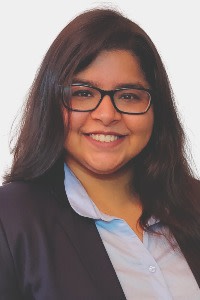
Has anything surprised you about the MBA?
I am amazed by the diversity of my cohort. I study in the same class as an army veteran who served the nation for 20 years, a mother who is managing the intense MBA schedule along with her kid, and a doctor who wishes to revolutionise the healthcare sector. I’ve become aware of several professions and industries in less than six months.
More importantly, I have also picked up the art of discipline, how to manage multiple priorities and other soft skills such as critical thinking, teamwork, leadership, communication and negotiation. Leading a team of students in class projects has taught me how to motivate a group towards a common goal, delegate tasks, resolve conflicts and manage time efficiently.
I believe these are all crucial skills and improve our decision making. And you learn something new every day with such incredible folks around you.
Amneek Kaur
Indian. Alliance Manchester Business School, UK, graduated 2020. Commercial finance manager for supply chain at Asda, Leeds, UK
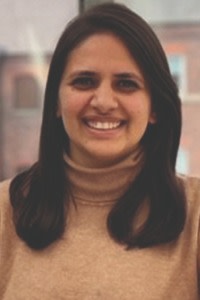
What advice would you give to anyone considering doing an MBA?
First, it is extremely important to be honest with yourself and figure out why you are doing the MBA and the long-term value it will give you. I have seen a lot of people who do it because it is good to have and will help their career. But you need to ask if it is really going to add value to your career, because it is a big investment of time and money.
The second thing is that a lot of people focus on rankings and location, especially international students, where visas are a big reason why people choose certain countries. But my philosophy was always to focus on the curriculum, because that is the life-long investment.
Your learning and experience will be the biggest takeaway from an MBA and these will help you to achieve your long-term career goals.
Karim Bugglé
French-German. Nanyang Technological University, Singapore, graduated 2018. Group head of strategic development, StashAway, Singapore and working remotely
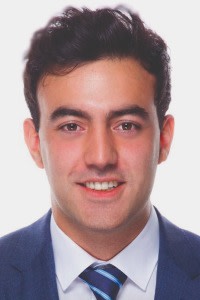
What made Nanyang the right fit for you?
I have always wanted to work in international environments and the Nanyang MBA had all the components to help me build that aspiration. My work experience includes stints in south-east Asia and Hong Kong, and growth in the region has been something else. My goal was to learn as much as possible and bring some of those lessons back to Europe or work in Asia for a few years.
Nanyang Technological University is one of the leading universities in Asia-Pacific, which made it a very obvious choice. The course appealed to me too. It was a good opportunity to gain practical knowledge and much of the programme is based on real-life examples, with a significant number of consulting projects. It was also a great opportunity to work with people from different backgrounds: the Nanyang MBA has over 15 nationalities in cohorts of fewer than 100 people.
Finally, the faculty has very talented professors.
Melissa Christensen
Belgian-American. Insead, France, graduated 2021. Paris, France. Due to join BCG Geneva in May
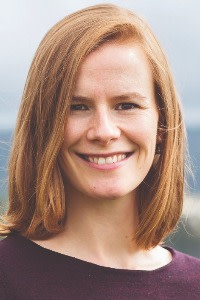
Why did you decide to study for an MBA?
Before the MBA, I worked in the communications team of a sustainability consultancy. This gave me a keen understanding of the critical environmental challenges we face — and the opportunities for businesses. But it also made me hungry to have a more direct impact. As I coached my colleagues in giving speeches, I wanted to be the one persuading our clients.
As I supported co-workers in sharpening the business case for our services, I wanted to be the one guiding clients’ transformations. For this, I needed to achieve fluency in the language of business so I could translate environmentally conscious practices into strategies, articulate market opportunities and risks, and lead companies to take bolder environmental action.
I identified the MBA as the best training to accelerate my career transition from communications to strategy, and grow my ability to make a positive impact.
Kiara Goodwin
American. Bayes Business School, UK, graduated 2021. Account director, Boster Group, London, UK
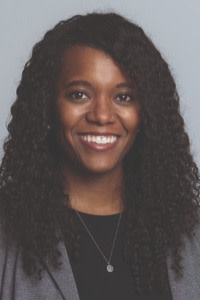
How do you apply what you learnt on the MBA to your work?
A big part of what we do is business development and, coming from a comms background, I did not have a lot of experience in that. So, having a better understanding of how all pieces in a business work together is really helpful. I also apply a lot of the soft skills I honed last year, such as speaking and executive presence. The firm’s clients and prospective clients are from large multinational companies and arts institutions, so I feel a lot more comfortable and confident in those meetings now.
From a strategy perspective, I had a really cool opportunity to take my dissertation and turn it into a recommended strategy to create commercial opportunities for the firm. I would not have even known where to begin before the MBA.
It has been fantastic to take all that hard work and turn it into something that will help lead the business in 2022.
Comments